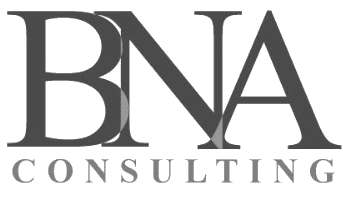Introduction
VAT accounting might sound like a tedious chore, but trust me, it’s important for every consulting. Whether you’re a small startup or a large corporation, understanding and managing VAT is essential. But, what if there was a way to make this process smoother and more cost-effective? Enter outsourced VAT accounting services. It’s like having a team of financial wizards handling your VAT needs, leaving you with more time and resources to focus on growing your business.
Understanding VAT Accounting
What is VAT?
VAT, or Value-Added Tax, is a consumption tax levied on goods and services at each stage of production or distribution. Think of it as a little extra cost added to the price of goods and services, which is collected by businesses on behalf of the government.
How VAT Works
VAT is collected incrementally, based on the increase in value of a product or service at each stage of production or distribution. For instance, if you buy raw materials, produce a product, and then sell it, VAT is added at each step, but ultimately paid by the end consumer.
The Role of VAT in Business
VAT isn’t just a tax; it’s a pivotal part of the business ecosystem. Proper VAT accounting ensures compliance with regulations, avoiding penalties, and maintaining a good reputation with tax authorities.
Challenges in Managing VAT Accounting In-House
Complexity of VAT Regulations
VAT regulations are like a labyrinth—complex and ever-changing. Keeping up with the latest rules can be a full-time job, one that requires constant vigilance and expertise.
Time-Consuming Processes
VAT accounting involves meticulous record-keeping and timely submissions. For many businesses, this translates to hours of work each month, time that could be better spent on core activities.
Risk of Errors and Penalties
Errors in VAT accounting can lead to severe penalties and interest charges. It’s a high-stakes game where even a small mistake can cost a lot.
What is Outsourced VAT Accounting?
Definition and Explanation
Outsourced VAT accounting means delegating your VAT-related tasks to a specialized external firm. These experts handle everything from calculating VAT, preparing returns, to ensuring compliance with all regulations.
Common Services Provided
Outsourced services can include VAT registration, preparation and submission of VAT returns, VAT audits, and advisory services to optimize your VAT strategy.
Advantages of Outsourcing VAT Accounting
Cost Savings
One of the biggest perks is the cost savings. You cut down on the need for in-house staff and the associated expenses like salaries, benefits, and training.
Expertise and Accuracy
Outsourcing firms specialize in VAT accounting. Their expertise ensures accuracy, reducing the risk of costly errors and penalties.
Time Efficiency
By outsourcing, you free up valuable time. Your team can focus on strategic tasks rather than getting bogged down in VAT paperwork.
Technology and Tools
Outsourced firms use the latest technology and tools to streamline VAT processes, providing more efficient and accurate services.
Financial Benefits of Outsourced VAT Accounting
Reduced Operational Costs
Outsourcing reduces the need for in-house resources, including hiring, training, and maintaining an accounting department.
Improved Cash Flow Management
Expert handling of VAT can lead to better cash flow management, ensuring that you claim all the VAT credits you’re entitled to.
Enhanced Financial Planning
With precise VAT accounting, you gain better insights into your financial health, aiding in more effective financial planning and decision-making.
How Outsourced VAT Accounting Can Save Your Money
Outsourcing VAT accounting can significantly reduce costs in various ways. Let’s break it down with some examples:
- Reduced Staffing Costs: No need to hire full-time VAT specialists.
- Avoidance of Penalties: Accurate VAT filings mean fewer penalties.
- Efficient Processes: Automation and expert handling streamline operations, saving time and money.
Comparative Analysis with In-House Accounting
Cost Comparison between In-House and Outsourced VAT Accounting
| Aspect | In-House Accounting | Outsourced Accounting |
|---|---|---|
| Staffing Costs | High (salaries, benefits) | Lower (service fees) |
| Training and Development | Ongoing | Included in service |
| Technology and Tools | Expensive | Provided by the firm |
| Error and Penalty Costs | Higher risk | Lower risk due to expertise |
| Time Investment | Significant | Minimal (managed externally) |
Case Studies
Small Business Example
A small online retailer struggled with VAT compliance, leading to frequent penalties. After outsourcing, they not only saved money but also improved compliance and reduced stress.
Medium-Sized Business Example
A medium-sized manufacturing firm found in-house VAT accounting too time-consuming. Outsourcing allowed them to focus on production while experts handled their VAT, resulting in significant cost savings and efficiency gains.
Large Corporation Example
A large corporation with complex VAT needs benefitted from the specialized knowledge of an outsourcing firm. They saved millions in potential penalties and optimized their VAT strategy.
Steps to Transition to Outsourced VAT Accounting
Assessing Your Needs
Evaluate your current VAT processes and identify pain points and inefficiencies.
Finding the Right Provider
Look for a provider with experience in your industry, strong references, and technological capabilities.
Implementation Process
Work closely with your chosen provider to ensure a smooth transition, including setting up processes, data transfer, and staff training.
Features to Look for in an Outsourced VAT Accounting Service
Experience and Expertise
Choose a firm with a proven track record in VAT accounting and strong industry knowledge.
Technological Capabilities
Ensure they use the latest technology to provide efficient and accurate services.
Customer Support
Reliable customer support is essential for addressing any issues or questions promptly.
Common Misconceptions About Outsourcing VAT Accounting
Loss of Control
Many fear losing control over their VAT processes. However, with regular communication and clear expectations, you remain in control.
Confidentiality Issues
Reputable firms ensure strict confidentiality and data security measures to protect your information.
Cost Concerns
While there are costs involved in outsourcing, the savings and efficiencies gained often outweigh these.
Best Practices for Managing Outsourced VAT Accounting
Regular Communication
Maintain regular contact with your provider to stay updated and address any issues promptly.
Setting Clear Expectations
Define clear goals and expectations from the outset to ensure alignment.
Monitoring Performance
Regularly review the performance of your outsourcing firm to ensure they meet your standards and requirements.
Future Trends in VAT Accounting
Technological Advancements
The future of VAT accounting lies in technology, with automation and AI playing significant roles in streamlining processes.
Changing Regulations
Stay updated with evolving VAT regulations to ensure compliance and leverage opportunities for optimization.
Globalization of VAT Compliance
As businesses expand globally, understanding and complying with international VAT regulations becomes crucial.
Conclusion
Outsourcing VAT accounting isn’t just a smart move; it’s a game-changer for businesses of all sizes. From cost savings to expert handling, the benefits are clear. So, why not give it a try and see how much you can save?


